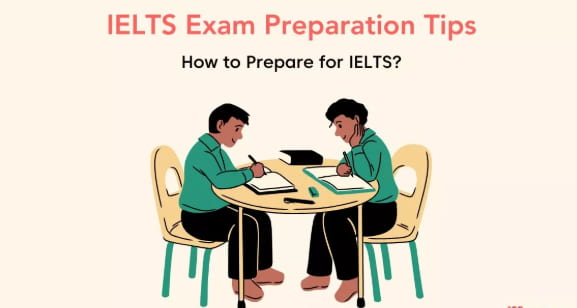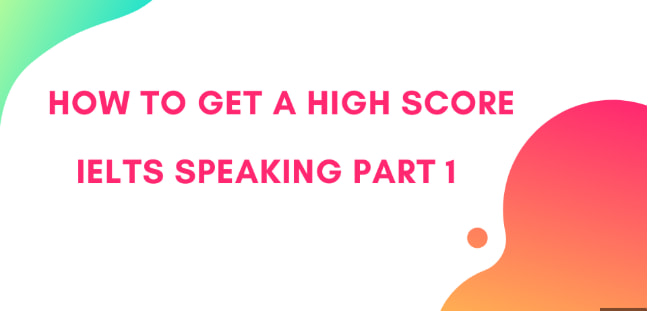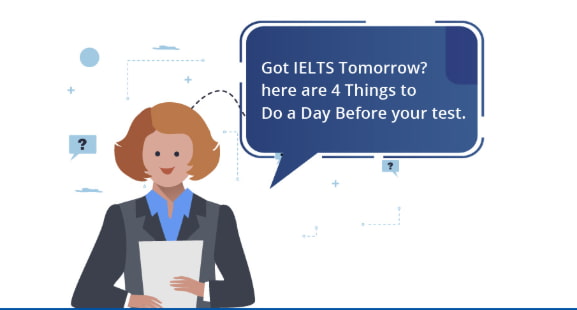Contents
Perhaps you’ve reached a point in your IELTS journey, perhaps reaching the 7-7.5 band, but haven’t quite made it into that magical “8+” club? If you’re saying, “My English is good, I understand it, I speak it, but something’s missing in the exam.” you’re in the right place. Because the case that “get band IELTS 8+” isn’t just about good English. It’s about mastering the language like a virtuoso, understanding its nuances, and knowing exactly what the exam requires and delivering it accordingly. In this article, we’ll share those elite tactics, not found in textbooks but known only to those who have thoroughly mastered the exam.
Leaving aside standard advice, the most crucial point for candidates seeking a high IELTS score is a thorough understanding of the exam format. The Listening, Reading, Writing, and Speaking sections each require different skills, and unique techniques must be employed to succeed in each section. A candidate aiming for an 8+ score must demonstrate consistent performance in each of these sections. Especially the Writing and Speaking sections are the most decisive areas to make a difference in the exam. Now read and get band IELTS 8+!

Not only hard work, but also proper study plays a key role in this process. Choosing quality resources, time management, frequent practice exams, and receiving professional feedback are crucial steps toward to get band IELTS 8+. Furthermore, analyzing your own shortcomings and creating a study plan accordingly is key to success. In short, candidates who want to achieve this goal need to both improve their language skills and gain an exam-focused perspective.
If you’re ready, we’re unveiling the secret that will take you from the boring plateau of the 7 band to the peak of 8+!
The Secret to Listening: Don’t Just Hear, Listen it!
Getting an 8+ on the Listening test means getting at most 4-5 errors out of 40 questions. To reach this level, being a good listener isn’t enough; you have to be a “listening oracle.” The secret is to use the short time you’re given before the recording begins like gold. Don’t just read the questions; try to “predict” what kind of information the answers might contain. Does the blank space ask for a name, a date, a phone number, or an action? When your brain knows what it’s looking for, it pulls that information out of the crowd like a magnet. This is the first step in transitioning from passive listening to active, focused listening.
Another characteristic that distinguishes IELTS 8+ candidates from others is their vigilance against “distractors.” The speaker might first mimic an answer and then immediately correct it with a phrase like “however, but actually…” or “oh, sorry, I meant….” While a candidate with a 7-level score might jump to the first answer they hear, an IELTS 8+ candidate listens patiently and grasps the final, corrected information. Therefore, don’t be too excited when you hear an answer; maintain your concentration until the end of the sentence.

In challenging multiple choice questions, eliminating incorrect answers, rather than trying to find the correct answer, is a lifesaver. Incorrect answers are often traps filled with words that appear in the conversation but don’t answer the question. Just because the word “Monday” appears in the audio recording doesn’t mean every answer containing “Monday” is correct. Understanding the question’s exact question and eliminating these trap words to arrive at the correct answer demonstrates the analytical skills of an IELTS 8+ level.
Focus on Flow in Listening 4!
Listening Section 4, the academic monologue, is often where the most mistakes are made. To succeed in this section, you need to follow the speaker’s flow of thought. Speakers use signal words (signposting language) like “Firstly…”, “Another important point is…”, and “In conclusion…” to structure their ideas. These words are like traffic signs that signal what kind of information is coming next. By following these signals, you won’t lose track of where you are in the conversation or miss answers.
Finally, don’t just focus on your correct answers while practicing. After each attempt, be sure to read the transcript of each question you got wrong or missed. Ask yourself, “Why didn’t I hear this word?”, “Why didn’t I understand this accent?“, and “What was the trap here?” This in-depth analysis will help you identify your weaknesses and avoid the same mistake on the next attempt. Achieving an IELTS 8+ is the achievement of those who learn the most from their mistakes.

Reading Secret: Get Inside Writer’s Mind, (IELTS 8+)
Getting an 8 or 9 in the Reading section means racing against time while simultaneously understanding the deeper meanings of the text and the author’s intention. At this level, you can’t progress simply by finding keywords. Especially in questions like “True/False/Not Given” or “Yes/No/Not Given,” you need to understand not only the existence of information but also the author’s presentation, tone, and degree of assertion. There’s a huge difference between the phrases “Some scientists believe…” and “It is a well-known fact that…” Identifying these nuances is key to an IELTS 8+ score.
“Matching Headings” questions are a nightmare for many candidates. The key for an IELTS 8+ level is this: Don’t focus solely on the first sentence of a paragraph. Sometimes the main idea of a paragraph may be hidden in the middle or end. After quickly scanning the paragraph, ask yourself this question: “If I were to summarize this paragraph in a single sentence, what would it be?” Your answer to this question will usually align with the correct title. Think of titles as a summary of the paragraph, not just a sentence from within it.
Advanced vocabulary knowledge sets you apart in this section. However, knowing a word isn’t just about knowing its meaning; it’s also about knowing its synonyms and paraphrasing. The answer to the phrase “a significant increase” in the question might be “a substantial rise” or “rocketed” in the text. The faster you can build this “paraphrase” bridge between the text and the question, the more successful you’ll be. Therefore, when studying vocabulary, learn not only the “word = meaning” but also the synonym network of that word.

Writing Secrets: Forget Stereotypes for IELTS 8+
Making the leap from a 7 to an 8+ in Writing is perhaps one of the most challenging steps. This is where memorized template sentences and simple conjunctions (and, but, so) end. The examiner wants to see how deeply you understand the topic and how sophisticatedly you can express your ideas. In Task 2, a balanced approach to both sides of the presented topic, rebutting opposing views, and clearly presenting your own position is essential for an IELTS 8+. Simply stating “some people think this way, others think that way” isn’t enough; you need to connect those ideas to one another.
To raise your Lexical Resource score to an IELTS 8+, you need to use less common and more specific vocabulary related to the topic. For example, using phrases like “detrimental impacts” or “adverse consequences” instead of “bad effects” when writing about “environmental pollution” will instantly boost your score. However, using these words in the right context is crucial. Using a word in the wrong place just to look cool can do more harm than good.
“Grammatical Range and Accuracy” is another key point. The 8+ band expects you to be able to use not only simple sentences but also complex and compound sentences without errors. Beginning your sentences with structures like “Although…, …”, “Not only… but also…,” and “…, which is why…” demonstrates your mastery of grammar. Being able to use “inversions” (e.g., “Rarely do we see…”) correctly is a show-off that will impress the examiner.

Plan and Review Your Article!
Achieving an IELTS 8+ for Task 1 (Academic) isn’t just about identifying the main trends in the graph; it’s also about making meaningful comparisons between the data and synthesizing the most striking points. Instead of saying, “X increased from 20 to 40, while Y remained at 30,” using a sentence like, “X experienced a twofold increase, standing in stark contrast to Y, which remained static throughout the period,” demonstrates the depth of your analytical skills.
Finally, allocate sufficient time to planning and revising. A detailed plan, prepared for 5 minutes before you start writing, will ensure your ideas flow logically and prevent you from getting stuck. After you’ve finished writing, spend at least 3 minutes reading your own text through the eyes of an examiner and hunting for errors. Look for common grammatical errors (articles, prepositions, subject-verb agreement). Remember, error-free and sophisticated text is the signature of an IELTS 8+ score.
Secret to Speaking: Don’t Just Talk, “Develop Ideas”!
Earning an IELTS 8+ on the Speaking exam isn’t just about speaking fluent and accurate English. This level demonstrates the depth of your thinking, how you structure your ideas, and how well you can express yourself with a wide range of vocabulary. Especially in Part 3, instead of simply answering abstract questions like “I think it’s good,” you’re expected to give multifaceted and analytical answers like “Well, from one perspective, it could be argued that… However, another way of looking at it is…” The examiner wants to see that you can truly “think” about a topic.
For “Fluency and Coherence,” use more sophisticated conjunctions than simple conjunctions when connecting your thoughts. Break away from the “And, but, so” triangle and enrich your speech with phrases like “Furthermore…”, “On the other hand…”, “Consequently…”, and “Having said that…”. This will make your speech sound more organized and academic. Additionally, when you need time to think, instead of saying “ııı…”, using fillers like “That’s an interesting question, let me think about that for a moment…” will both save you time and create a more natural impression.

To maximize your Lexical Resource score, try to use idiomatic expressions and less familiar collocations naturally. For example, saying “I was over the moon” instead of “I was very happy” or “it’s an integral part” instead of “it’s a very important part” demonstrates your command of the language. However, avoid overusing or using these idioms incorrectly. Naturalness is paramount.
In Summary for IELTS 8+
Finally, be proactive. Don’t just give a short answer to the examiner’s question and then shut up. Support your answer with an example, share a personal experience, or take the topic to a different level. For example, instead of simply saying “Yes, I do” to the question “Do you like reading?”, give an expanded answer like “Yes, I’m an avid reader. In fact, I’ve just finished a fascinating historical novel that completely changed my perspective on…” Show that you’re a candidate who takes initiative, enjoys speaking, and has something to say. This is the most distinctive characteristic of an IELTS 8+ candidate.
As you can see, it’s not just about acquiring more English knowledge. It’s about using the language more consciously, strategically, and sophisticatedly. Now you know what you can do differently than the average candidate in each section, how you can impress the examiner, and how you can demonstrate your command of English. These tactics will be your secret weapons. Remember, reaching this level is a marathon, not a sprint. By working patiently, intelligently, and embracing these elite tactics, it’ll be just a matter of time before you see that IELTS score of 8 or higher on your results sheet. Now, it’s time to work your way into that top 1%!
